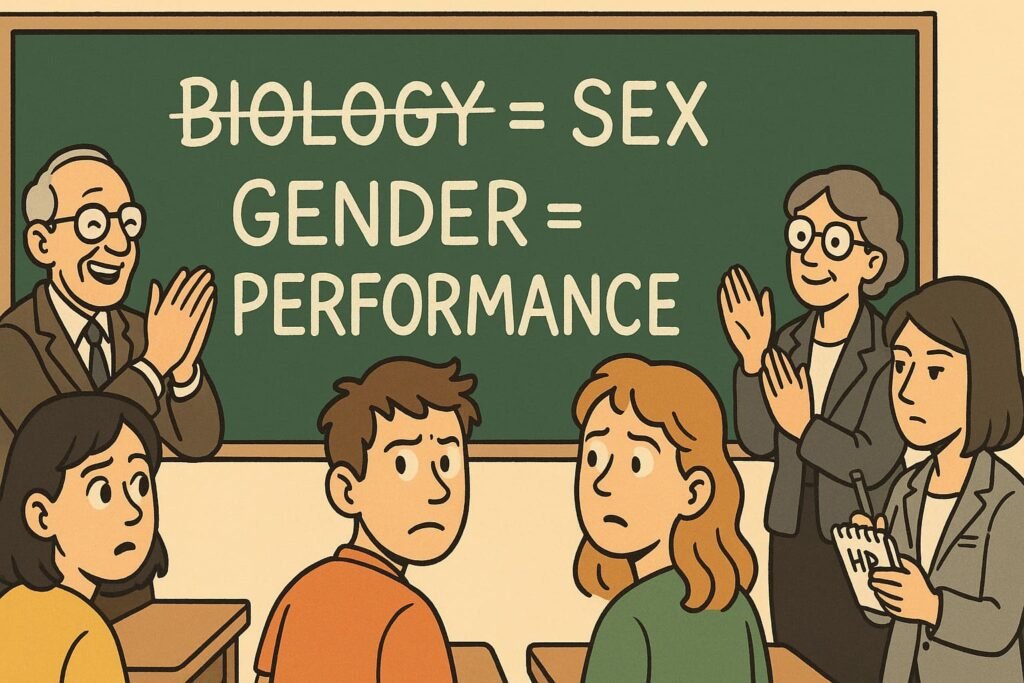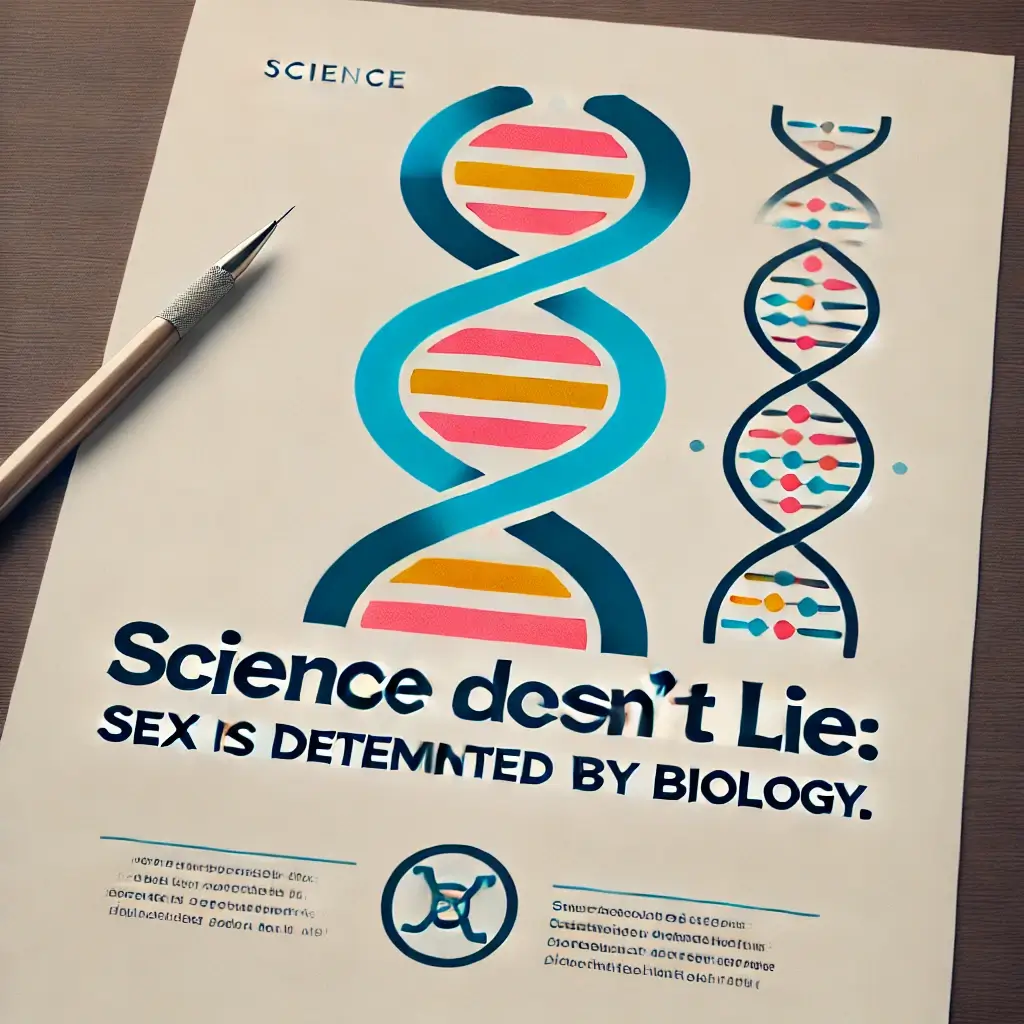Gender Theory – When Biology Became Optional
From Roles to Identity
For most of history, “man” and “woman” were biological categories. You were born male or female, and that was that. Enter Gender Theory.
Born in academia in the late 20th century, it argued that gender isn’t rooted in biology at all, but in social scripts. Masculinity and femininity aren’t natural — they’re performances.
The promise was liberation. The result? A worldview where biology is sidelined, identity is self-declared, and everyone else must play along.
Table of contents
What Is Gender Theory?
In plain terms, it says:
- Sex is biology; gender is culture.
- Male/female roles are learned behaviours, not facts of nature.
- People “perform” gender in daily life.
- If roles are constructed, they can be deconstructed.
In short: manhood and womanhood aren’t realities, they’re costumes society makes you wear.
Buzzwords of Gender Theory
The movement comes with its own dictionary:
- Patriarchy – Male dominance disguised as tradition.
- Gender Roles – Scripts imposed by culture.
- Hegemonic Masculinity – The ruling model of manhood that enforces patriarchy.
- Gender Performativity – The claim that gender is an act, not an essence.
These buzzwords make Gender Theory less about understanding differences and more about dismantling them.
How it Shows Up in Practice
- In Education: Children taught that gender is fluid and optional.
- In Law: Legal categories redefined around gender identity.
- In Workplaces: HR rolls out gender training and pronoun rules.
- In Media: Storylines rewritten to model gender deconstruction.
What started as theory now runs through schools, policies, and corporate memos.
Why Institutions Promote Gender Theory
- Academics: Careers built on papers about masculinity, femininity, and identity.
- Activists: New leverage to challenge tradition and demand reforms.
- Corporations: Easy PR wins with “inclusion” campaigns and training modules.
- Politicians: Cheap virtue points without touching harder issues like wages or housing.
Like CRT, Gender Theory doesn’t just analyse — it creates jobs, departments, and whole bureaucracies.
The Consequences
- Biology sidelined: Science replaced with ideology.
- Speech policed: Wrong pronoun? Social or legal punishment.
- Instability: If identity is fluid, the law struggles to keep up.
- Division: Instead of dissolving gender, the theory creates endless conflict over it.
The irony? A theory meant to free people from rigid categories often creates new rules, enforced by HR officers, activists, and lawmakers.
Why It Matters
Gender Theory isn’t just academic jargon. It reshaped education, law, and corporate life. It turned basic biological categories into political battlegrounds — and handed power to the activists and bureaucrats who manage the rules.
From Liberation to Bureaucracy
Gender Theory began as a critique of restrictive roles. Today, it’s an orthodoxy where biology is negotiable but ideology is mandatory.
The fight for freedom from gender roles became a new regime of identity rules. Liberation turned into regulation.
NEXT: Queer Theory
For a deeper understanding of Critical Theory, check out our Critical Theory Explainer Hub.
FAQ
What is Gender Theory in simple terms?
It’s the idea that gender is a social construct, not biology.
Where did Gender Theory come from?
Thinkers like Judith Butler developed it in the late 20th century, building on feminism and postmodernism.
Why is Gender Theory controversial?
Because it denies biology, enforces speech codes, and fuels identity-based conflict.
How does Gender Theory affect society?
It shapes laws, schools, workplaces, and media with policies and rules on gender identity.
What’s the danger of Gender Theory?
That it replaces biology with bureaucracy, turning identity into an endless political project.
How does Gender Theory differ from Trans Studies or Queer Theory?
- Gender Theory treated “man” and “woman” as cultural scripts — flexible roles shaped by society rather than fixed biology.
- Trans Studies went further, arguing that gender is whatever a person declares, and institutions must affirm it.
- Queer Theory broke the frame entirely, calling categories like male/female or gay/straight oppressive. The binaries collapse, and new identities multiply without end.
- In short: Gender Theory = roles flexible / Trans Studies = identity declared / Queer Theory = categories meaningless



